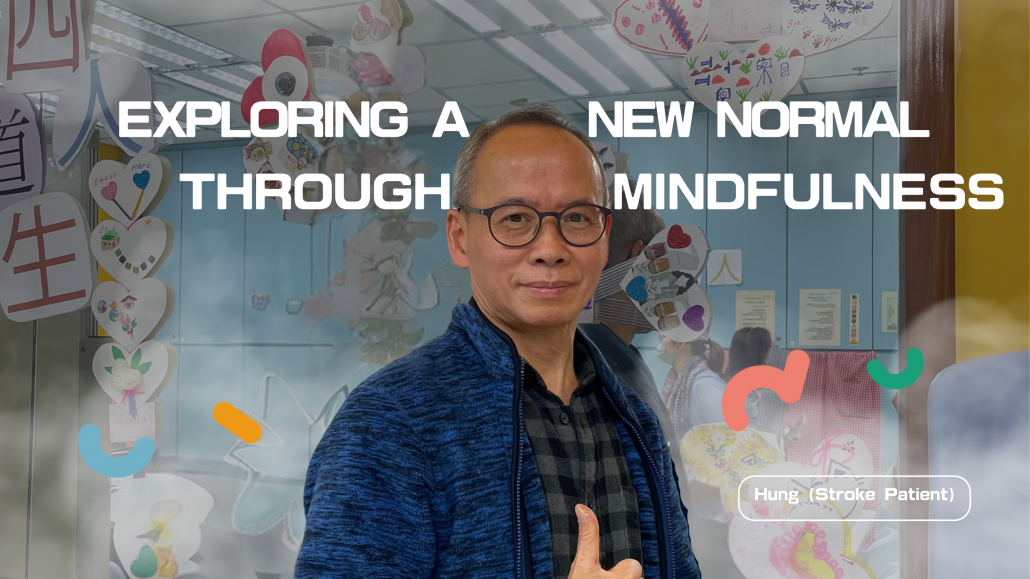

Hung, aged 64, suffered a stroke approximately eleven years ago, which left his left side paralyzed temporarily. He relied on a wheelchair initially but persevered with daily rehabilitation exercises, gradually regaining his mobility. He now uses a regular cane and manages his daily activities independently. Hung never harbored resentment towards his illness. After retiring, he moved back to live with his mother and younger brother, actively participating in volunteer activities.
Hung enrolled in a course by CRN with the goal of improving his relationship with his mother. He explained, “My mother is responsible for cooking, and she adjusts the taste to suit my dietary restrictions. Initially, during the early stages of recovery, I was more anxious, and the effects of the stroke sometimes affected my temper. I couldn’t help but complain when the food was too salty. My mother, being concerned about ‘saving face’, felt that I was criticizing her all the time, and we would often argue over trivial matters.”
During the psychosocial course, a social worker explained how the mind operates and introduced mindfulness practices to observe thoughts and emotions. Hung particularly remembered the third session of mindfulness practice, which brought him a sense of calmness. He said, “The social worker guided us to focus on our breath, and it instantly calmed my mind. I learned to ‘pause and reflect’ instead of immediately expressing every passing thought. In the past, I used to argue with my family over trivial matters, blurting out whatever came to my mind, resulting in intense conflicts. Now, even when we have disagreements, I quickly realize the need to stop, take a break, and let everyone calm down.”
“Valuing family and living in the present” became a renewed focus for Hung in the course. He emphasized, “Family is my priority. My mother is already 80 years old, and sometimes she may not be open to suggestions. Instead of arguing over small matters, I have learned to accept her as she is, hopefully not damage our relationship.”
Long-term patients or individuals in rehabilitation tend to have more worries, and Hung is no exception. He would get anxious even during minor rain showers, thinking about how to manage with his cane and umbrella. In the course, he learned a technique called “letting it be,” which proved to be very effective. He shared, “I realized that thoughts would randomly arise, sometimes making me worry unnecessarily. But when I ‘let it be,’ the thoughts would eventually disappear, which was quite fascinating. I’ve also been fortunate that whenever I engage in volunteer work, the weather hasn’t been too bad, and I realize that I don’t need to worry excessively.”
“One lesson involved talking to strangers, and one day I struck up a conversation with someone fishing by the seaside.” Hung, a stroke survivor and rehabilitation participant, laughed as he shared his experience. The course encouraged stepping out of the comfort zone, and it led Hung to discover a newfound interest in playing darts. He explained, “The social worker encouraged us to chat with strangers, take different routes home, or buy different types of bread from the bakery. One day, when I visited the bakery I usually went to, I discovered a wide variety of bread options. I wondered why I had always stuck to buying the same two or three types. Now, I try different ones, and it feels like my mind has opened up! In the past, I was conservative and introverted, feeling that life was dull. But now I realize that by being willing to try new things, life can be more interesting.” After the course, Hung discovered new hobbies. He said, “I enjoy photography and cycling, but after the stroke, it’s challenging for me to carry a big camera. So, I switched to using my phone for photography, and if I can’t ride a bicycle, I started playing darts instead. It’s still enjoyable.”











